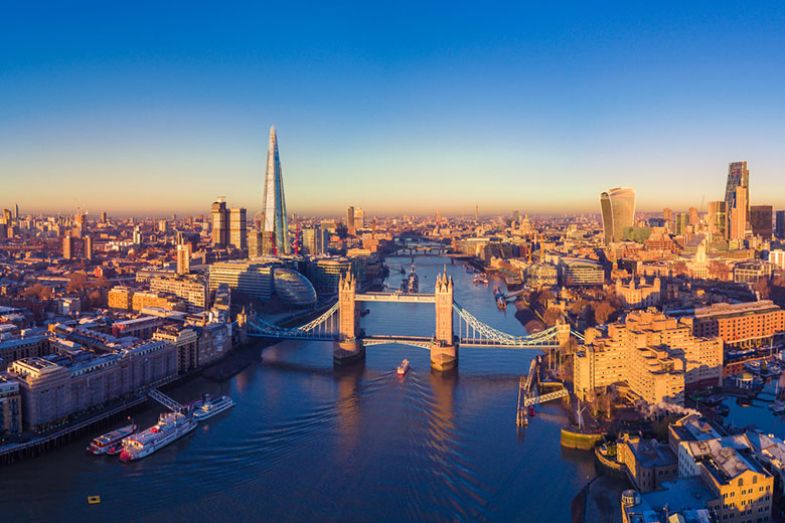
Source:
iStock

London’s higher education institutions are individually excellent – together they help create a world-class city of knowledge, writes Jane Glanville
While all play important roles individually and offer unique qualities, it is together that London’s higher education institutions make their greatest impact. Collectively they create an education hub on a grand scale, a fantastic destination for hundreds of thousands of students and academics. Their impact nationally and across the world is facilitated by their relationships with each other and also the manner in which they utilise each other’s endeavours. A world-class HE cluster that befits a true world city.
It is now 20 years since London Higher was formed as a regional body to support and advocate for London’s HEIs. This landmark birthday is an appropriate time to celebrate the outstanding work and remarkable impact that our capital city’s HEIs continue to have.
The way that the HE market works means there is, naturally, competition between HE institutions in London as well as between them and those across the UK and internationally. Just as businesses compete for consumers, London’s universities find themselves vying for similar students, funding and different sorts of investments. Competition among London’s university cluster – accentuated by their close geographic proximity – has always existed. Some healthy competition actually enhances the offer and the output, and part of London Higher’s role has been to promote, advocate and act as a voice for London’s HEIs as one, be it a major Russell Group university, a specialist conservatoire, or any size or mission-type in between, and highlight all of their excellence and varied contributions. The calibre and diversity of London’s HEIs, driven further by this competition, is what has enabled London’s global position in the HE market. The heterogeneity across all the institutions means there is an opportunity for everyone.
London is home to a diverse range of 40 mainstream universities and HE colleges, ranging from large research intensive HEIs, small specialist HEIs, locally embedded and also teaching-led HEIs, among others. This concentration of high-quality HEIs provides London with a place on the global platform because their collective offering is vastly superior to almost all of its counterparts. There is nothing to match the London HE cluster elsewhere in the UK or Europe, and precious few come close elsewhere.
The combined contribution of London HEIs to community and society is exceptional. London’s HEIs produce more than 130,000 skilled graduates every year, 70 per cent of whom remain in the capital after graduation to work and provide a broad skills base. London HEIs are also huge employers, with 93,000 jobs provided; and they have generated a regional gross value added of more than £7.9 billion to London. They also employ 98,000 staff directly, with roles ranging from renowned professors through to outreach specialists and hospitality and leisure staff. Individually they all run projects, and carry out world-leading research, that have positive impacts on London and Londoners. Without question they not only perform their civic duty but go above and beyond it.
A prime example of this is UCL, which has brought together creative organisations to collaborate on projects, including innovative choreography and the benefits of dance for those suffering Parkinson’s disease. Or the researchers at Birkbeck, University of London, who have helped cut ambulance response times. Or the Refugee Assessment and Guidance Unit at London Metropolitan University, which provides specialist careers advice and guidance, as well as employability training, for all refugee health professionals.
The impact of London HEIs’ civic engagement is far-reaching, and yet often does not get the recognition it deserves. Each individual HEI provides great services, contributing to what London HEIs offer as a collective. Together they offer far more than they do alone.
This month London Higher published an Impact Catalogue, a collection of case studies from our diverse membership which demonstrates just what London HEIs do for London. There are 75 case studies, but they only scratch the surface of what is done each year. Many people may consider that HEIs exist as finishing schools for 18- to 21-year-olds, and they do. But they are also huge employers. They carry out ground-breaking research, they are anchors of their community and deliver civic good, and they generate a skilled workforce for London and beyond.
What London HEIs offer and the contributions they make should be celebrated every day. This again though, is only possible through a collective effort. To alter opinion on London HEIs on a national and global scale, all HEIs need to be contributing to ensure maximum impact.
As a global and capital city the challenges London face are unique, but they are managed and overcome exceptionally through their individual and also collaborative approach. The next step is to ensure people are aware of their outstanding offering – and this too can only really be done as a collective. At London Higher we very much look forward to playing a central role in this in 2020.
Jane Glanville is the chief executive officer of London Higher, the regional association for London’s higher education institutions

